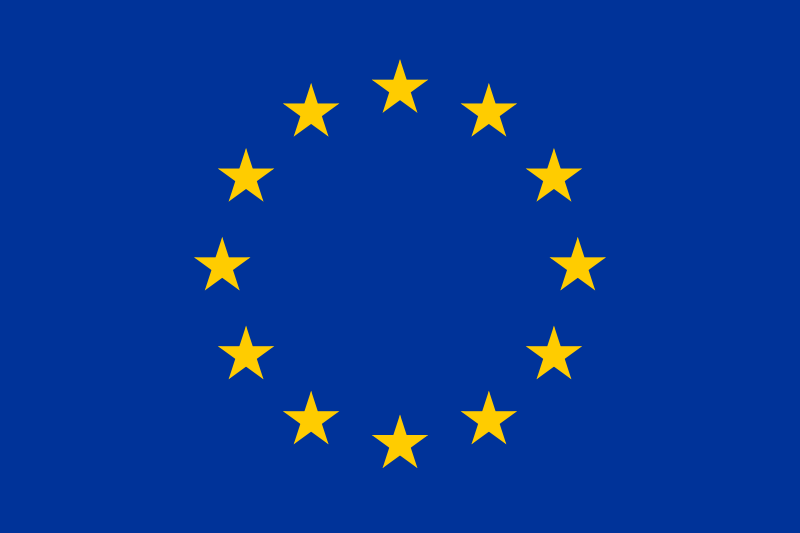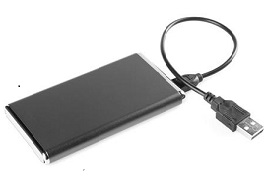Ihre Privatsphäre ist uns wichtig! Sie können entscheiden, welche Cookies Sie zulassen möchten. Weitere Informationen finden Sie in unserer Datenschutzerklärung. Sie können die erteilte Einwilligung jederzeit widerrufen.
2014 -
18
Dez 2014
WEEE Regulations in UK – Classification of Dual Use Equipment will Change
 Following the new WEEE Regulations in UK, beginning with January 1, 2016, any electrical and electronic equipment which can be used by both households as well as business users (‘dual use’) has to be classified as household equipment (B2C).
For producers whose electrical and electronic equipment is re-classified as B2C this means:
• Producers will have to provide the sales data in accordance with the new classifications beginning with January 1, 2015. This is required in order to calculate the obligations for 2016.
• Since the invoicing for the volumes put on the market in 2015 takes place in 2016, producers might have to face an additional B2C financial obligation up from January 2016.
• Producers need to change registration with the Environment Agency. This has to be done prior to the data submission for the first quarter of 2015.
Following the new WEEE Regulations in UK, beginning with January 1, 2016, any electrical and electronic equipment which can be used by both households as well as business users (‘dual use’) has to be classified as household equipment (B2C).
For producers whose electrical and electronic equipment is re-classified as B2C this means:
• Producers will have to provide the sales data in accordance with the new classifications beginning with January 1, 2015. This is required in order to calculate the obligations for 2016.
• Since the invoicing for the volumes put on the market in 2015 takes place in 2016, producers might have to face an additional B2C financial obligation up from January 2016.
• Producers need to change registration with the Environment Agency. This has to be done prior to the data submission for the first quarter of 2015.
17
Dez 2014
Six new SVHCs added to the REACH Candidate List and one entry updated
 Today, six new SVHCs have been added to the REACH Candidate List by ECHA; and one existing entry has been updated.
Cadmium fluoride and cadmium sulphate are added to the Candidate List as being “Carcinogenic”, “Mutagenic”, “Toxic for reproduction” and are also identified as being of „Equivalent level of concern based on probable serious effects to human health“ (specifically due to the effects on kidney and bone).
Two benzotriazole substances (UV-320 and UV-328) are identified as being “persistent bioaccumulative and toxic and very persistent and very bioaccumulative (PBT/vPvB)”.
Two further substances, DOTE and the reaction mass of DOTE and MOTE are identified as being “Toxic for reproduction”.
The Member State Committee also unanimously agreed that bis(2-ethylhexyl) phthalate (DEHP) meets the criteria for identification as an SVHC under Article 57(f) due to its endocrine disrupting properties causing probable serious effects to the environment. As DEHP is already included in the Candidate List based on its toxic for reproduction properties, this entry will be updated to address the additional reason for inclusion.
As DEHP is already listed in the Authorisation List (Annex XIV), companies that were initially exempt from the authorisation requirement may, in the future, be subject to authorisation. However, before this could happen, the European Commission would need to amend the corresponding entry for DEHP in the Authorisation List.
Today, six new SVHCs have been added to the REACH Candidate List by ECHA; and one existing entry has been updated.
Cadmium fluoride and cadmium sulphate are added to the Candidate List as being “Carcinogenic”, “Mutagenic”, “Toxic for reproduction” and are also identified as being of „Equivalent level of concern based on probable serious effects to human health“ (specifically due to the effects on kidney and bone).
Two benzotriazole substances (UV-320 and UV-328) are identified as being “persistent bioaccumulative and toxic and very persistent and very bioaccumulative (PBT/vPvB)”.
Two further substances, DOTE and the reaction mass of DOTE and MOTE are identified as being “Toxic for reproduction”.
The Member State Committee also unanimously agreed that bis(2-ethylhexyl) phthalate (DEHP) meets the criteria for identification as an SVHC under Article 57(f) due to its endocrine disrupting properties causing probable serious effects to the environment. As DEHP is already included in the Candidate List based on its toxic for reproduction properties, this entry will be updated to address the additional reason for inclusion.
As DEHP is already listed in the Authorisation List (Annex XIV), companies that were initially exempt from the authorisation requirement may, in the future, be subject to authorisation. However, before this could happen, the European Commission would need to amend the corresponding entry for DEHP in the Authorisation List.
08
Dez 2014
Austria: Copyright Levies System still under Discussion
On 08, Dez 2014 | In Copyright Levies, News | By Alisa Maier
24
Nov 2014
North Africa: Revisions in Existing Copyright Levy Systems
On 24, Nov 2014 | In Copyright Levies, News | By Alisa Maier
 Copyright levy systems are definitely not solely a European matter. Many other countries worldwide have implemented very similar systems which must be adapted from time to time to the technical and social developments. An example for important and recent changes in Northern African countries are Tunisia, Morocco and Algeria:
• Algeria thoroughly revised the scope of levied products, amended the tariffs, changed some methods of calculating the levy, i.e. for Mobile Phones, and finally published the new list in June 2014. The scope of levied products has been substantially expanded, now covering Gaming Consoles, Tablets, Memory Cards and USB keys with larger capacities. In addition, product definitions were changed for devices such as MP3/4 players and TVs.
• Morocco published an amendment to the copyright law in June 2014 which deals specifically with the compensation for private copying. The amendment furthermore defines the responsibilities of local producers and importers of audio and audiovisual equipment. A committee within the Moroccan collecting society has been appointed to issue a list of products that will be levied. This new list is already prepared and is expected to be published within the new Financial Law of the year 2015.
• Tunisia has a remuneration system in place since 2011, with the same functions as the European Copyright Levy systems, however under a different name: Promote Creation. The levies are integrated in the customs system, and the list of levied products is currently under revision.
Copyright levy systems are definitely not solely a European matter. Many other countries worldwide have implemented very similar systems which must be adapted from time to time to the technical and social developments. An example for important and recent changes in Northern African countries are Tunisia, Morocco and Algeria:
• Algeria thoroughly revised the scope of levied products, amended the tariffs, changed some methods of calculating the levy, i.e. for Mobile Phones, and finally published the new list in June 2014. The scope of levied products has been substantially expanded, now covering Gaming Consoles, Tablets, Memory Cards and USB keys with larger capacities. In addition, product definitions were changed for devices such as MP3/4 players and TVs.
• Morocco published an amendment to the copyright law in June 2014 which deals specifically with the compensation for private copying. The amendment furthermore defines the responsibilities of local producers and importers of audio and audiovisual equipment. A committee within the Moroccan collecting society has been appointed to issue a list of products that will be levied. This new list is already prepared and is expected to be published within the new Financial Law of the year 2015.
• Tunisia has a remuneration system in place since 2011, with the same functions as the European Copyright Levy systems, however under a different name: Promote Creation. The levies are integrated in the customs system, and the list of levied products is currently under revision.
14
Nov 2014
WEEElogic: Two New Partners on Board
On 14, Nov 2014 | In News, Uncategorized | By admin
 French WEEE take-back scheme Ecologic, has acquired two new partners: RAEcycle, one of the two largest take-back and recycling schemes in Italy, and the WEEE Scheme of Veolia UK, one of the leading compliance schemes in the UK and part of the globally acting Veolia Group.
“With RAEcycle and the WEEE Scheme of Veolia UK on board, we are now able to handle all major and several smaller countries across Europe. This is a substantial progress for all of our take-back obligated clients”, said Meike Ruoff, Managing Director of WEEElogic.
For WEEElogic, the acquisition of two new partners is another step in completing its setup and extending its network across Europe. WEEElogic provides simple take-back solution for obligated parties. 1cc is able to add, due to its longstanding experience, consulting and management expertise on waste and further environmental legislations.
www.weeelogic.com
French WEEE take-back scheme Ecologic, has acquired two new partners: RAEcycle, one of the two largest take-back and recycling schemes in Italy, and the WEEE Scheme of Veolia UK, one of the leading compliance schemes in the UK and part of the globally acting Veolia Group.
“With RAEcycle and the WEEE Scheme of Veolia UK on board, we are now able to handle all major and several smaller countries across Europe. This is a substantial progress for all of our take-back obligated clients”, said Meike Ruoff, Managing Director of WEEElogic.
For WEEElogic, the acquisition of two new partners is another step in completing its setup and extending its network across Europe. WEEElogic provides simple take-back solution for obligated parties. 1cc is able to add, due to its longstanding experience, consulting and management expertise on waste and further environmental legislations.
www.weeelogic.com
06
Nov 2014
„Verbraucherrecht und WEEE-Recast“ – Neue Verpflichtungen für Online-Händler
On 06, Nov 2014 | In Veranstaltungen | By Alisa Maier
04
Nov 2014
Spanish Copyright Act Amended
On 04, Nov 2014 | In Copyright Levies, News | By Alisa Maier
 The Spanish Parliament finally approved several amendments to the Spanish Intellectual Property Law on October 30, 2014. The transitional system of copyright compensation to be paid out of the State Budget is maintained – for the time being.
According to the Government, the new amendments are meant to be a first step towards an overall revision of the current Intellectual Property Law, which will only be implemented in a European context. Apart from some defined exceptions, the current amendments will enter into force on 1 January 2015.
Key aspects of the amendments:
• Revision of the system of private copying with transitional character– State Budget System is maintained; for a revision of the private copying system the EU-Community regulation for harmonization is awaited
• Effective supervision instruments and mechanisms of the management bodies of the intellectual property rights (collecting societies); ensuring greater transparency and efficiency in the operation
• Improvement of the intellectual property protection in the internet (protection against infringements in the digital environment) – Google Tax
The Spanish Parliament finally approved several amendments to the Spanish Intellectual Property Law on October 30, 2014. The transitional system of copyright compensation to be paid out of the State Budget is maintained – for the time being.
According to the Government, the new amendments are meant to be a first step towards an overall revision of the current Intellectual Property Law, which will only be implemented in a European context. Apart from some defined exceptions, the current amendments will enter into force on 1 January 2015.
Key aspects of the amendments:
• Revision of the system of private copying with transitional character– State Budget System is maintained; for a revision of the private copying system the EU-Community regulation for harmonization is awaited
• Effective supervision instruments and mechanisms of the management bodies of the intellectual property rights (collecting societies); ensuring greater transparency and efficiency in the operation
• Improvement of the intellectual property protection in the internet (protection against infringements in the digital environment) – Google Tax
30
Okt 2014
Externer Akku für Mobiltelefon oder Tablet: Powerbank kann unter das ElektroG fallen
 Wer kennt das nicht: Man ist unterwegs und plötzlich gibt das Mobiltelefon oder Tablet den Geist auf, weil der Akku leer ist und neu aufgeladen werden muss. Abhilfe können hier die sogenannten Powerbanks schaffen, also externe Akkus, die via USB-Schnittstelle das Handy oder Tablet mit neuer Energie versorgen.
Das Powerbank selbst kann mittels eines Netzadapters direkt am Stromnetz oder via USB-Verbindung an einem Notebook aufgeladen werden. Auf den ersten Blick erscheint das Powerbank wie eine aufladbare Batterie. Doch aufgrund seiner Funktionalitäten und technischen Eigenschaften kann es unter den Anwendungsbereich des Elektro- und Elektronikgerätegesetzes (ElektroG) fallen, also als Elektrogerät eingestuft werden. Damit ergeben sich für Hersteller und Händler von Powerbanks weitreichende Verpflichtungen.
1cc unterstützt Hersteller und Händler von Elektro- und Elektronikprodukten wie beispielsweise Powerbanks bei der Klärung Ihrer Verpflichtungen aus dem ElektroG oder Batteriegesetz (BattG). Kontaktieren Sie uns unter compliance@1cc-consulting.com.
Wer kennt das nicht: Man ist unterwegs und plötzlich gibt das Mobiltelefon oder Tablet den Geist auf, weil der Akku leer ist und neu aufgeladen werden muss. Abhilfe können hier die sogenannten Powerbanks schaffen, also externe Akkus, die via USB-Schnittstelle das Handy oder Tablet mit neuer Energie versorgen.
Das Powerbank selbst kann mittels eines Netzadapters direkt am Stromnetz oder via USB-Verbindung an einem Notebook aufgeladen werden. Auf den ersten Blick erscheint das Powerbank wie eine aufladbare Batterie. Doch aufgrund seiner Funktionalitäten und technischen Eigenschaften kann es unter den Anwendungsbereich des Elektro- und Elektronikgerätegesetzes (ElektroG) fallen, also als Elektrogerät eingestuft werden. Damit ergeben sich für Hersteller und Händler von Powerbanks weitreichende Verpflichtungen.
1cc unterstützt Hersteller und Händler von Elektro- und Elektronikprodukten wie beispielsweise Powerbanks bei der Klärung Ihrer Verpflichtungen aus dem ElektroG oder Batteriegesetz (BattG). Kontaktieren Sie uns unter compliance@1cc-consulting.com.
09
Okt 2014
1cc-Vorträge auf der Care Innovation 2014 – Treffen Sie uns!
On 09, Okt 2014 | In Veranstaltungen | By Alisa Maier
 Mit Vorträgen zu Themen wie WEEE-Recast oder Energieeffizienz von IT-Produkten wird die 1cc auf der Care Innovation 2014 vom 17. – 20. November 2014 in Wien vertreten sein. Die Care Innovation ist eine internationale Messe und Konferenz für Rücknahme und und Entwicklung von energieffizienten Elektronikprodukten.
1cc Geschäftsführer Michael Krug wird über die Herausforderungen für Hersteller von IT-Geräten angesichts der bevorstehenden Energieeffizienzanforderungen in lateinamerikanischen Staaten sprechen. Einen Überblick über den Stand der nationalen Umsetzung des EU-WEEE-Recasts und dessen europaweite Folgen für Hersteller und Händler gibt 1cc-Beraterin Meike Ruoff. Ihre Kollegin Johanna Terry beleuchtet in ihrem Vortrag, inwiefern die Komplexität der einschlägigen Vorschriften für die Rücknahme gebrauchter oder fehlerhafter Produkte ein Hindernis innerhalb der Abfallhierarchie darstellt. Romain Letenneur von WEEElogic informiert, wie eine private europäische Initiative die Vereinfachung und Harmonisierung für Hersteller vorantreibt.
Datum: 19. November 2014
Zeit: 14:00 bis18:30 Uhr
Ort: Tagungszentrum Schloss Schönbrunn, Wien
Raum: 8 – Sophie
Referenten: Michael Krug, Meike Ruoff, Johanna Terry, 1cc GmbH, und Romain Letenneur, WEEElogic GmbH
Weitere Informationen:
http://www.care-electronics.net/CI2014/
Mit Vorträgen zu Themen wie WEEE-Recast oder Energieeffizienz von IT-Produkten wird die 1cc auf der Care Innovation 2014 vom 17. – 20. November 2014 in Wien vertreten sein. Die Care Innovation ist eine internationale Messe und Konferenz für Rücknahme und und Entwicklung von energieffizienten Elektronikprodukten.
1cc Geschäftsführer Michael Krug wird über die Herausforderungen für Hersteller von IT-Geräten angesichts der bevorstehenden Energieeffizienzanforderungen in lateinamerikanischen Staaten sprechen. Einen Überblick über den Stand der nationalen Umsetzung des EU-WEEE-Recasts und dessen europaweite Folgen für Hersteller und Händler gibt 1cc-Beraterin Meike Ruoff. Ihre Kollegin Johanna Terry beleuchtet in ihrem Vortrag, inwiefern die Komplexität der einschlägigen Vorschriften für die Rücknahme gebrauchter oder fehlerhafter Produkte ein Hindernis innerhalb der Abfallhierarchie darstellt. Romain Letenneur von WEEElogic informiert, wie eine private europäische Initiative die Vereinfachung und Harmonisierung für Hersteller vorantreibt.
Datum: 19. November 2014
Zeit: 14:00 bis18:30 Uhr
Ort: Tagungszentrum Schloss Schönbrunn, Wien
Raum: 8 – Sophie
Referenten: Michael Krug, Meike Ruoff, Johanna Terry, 1cc GmbH, und Romain Letenneur, WEEElogic GmbH
Weitere Informationen:
http://www.care-electronics.net/CI2014/
08
Okt 2014
1cc informiert auf IHK-Veranstaltung
On 08, Okt 2014 | In Veranstaltungen | By Alisa Maier


